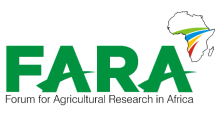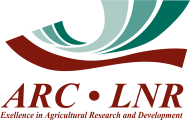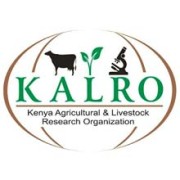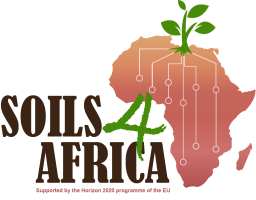ISRIC - World Soil Information was founded in 1966 following a recommendation of the International Soil Science Society (ISSS) and a resolution of UNESCO. It is an independent, science-based foundation under Dutch law.
ISRIC is the overall coordinator of the Soils4Africa project and will facilitate communication between the European Commission and the project team. ISRIC will lead the efforts to build the Soil Information System. It will support development of the field/ laboratory methodolgies, and the field campaigns.
https://www.isric.org/
Wageningen University (WU), is a leading university in Life Sciences focusing on agricultural and
environmental education and research. WU is among other partner in the Partnership for European Environmental Research (PEER), the Global Soil Partnership (GSP), the World Water Council (WWC), the Global Water Partnership (GWP), and Climate Change and Biosphere (CCB).
Wageningen University has excellent experimental facilities with dedicated soil physical, chemical and biological laboratories, including field monitoring stations, and supporting GIS and model development departments. In the Soils4Africa project, WU (Department of Environmental Sciences) will support field campaigns to collect soil samples, soil analysis, and capacity building in these areas.
https://research.wur.nl/en/organisations/department-of-environmental-sciences

The Forum for Agricultural Research in Africa (FARA), FARA is the apex organization bringing together and forming coalitions of major stakeholders in agricultural research and development in Africa. FARA is the technical arm of the African Union Commission (AUC) on rural economy and agricultural development and the lead agency of the AU’s New Partnership for Africa’s Development (NEPAD) to implement the fourth pillar of the Comprehensive African Agricultural Development Programme (CAADP), involving agricultural research, technology dissemination and uptake.
In the Soils4Africa project, FARA will carry out stakeholder consultations which include: (i) mapping of relevant stakeholders; (ii) case studies’ documentation and validation; (iii) capitalization workshops.
https://faraafrica.org/
Szent István University (SZIU), one of Hungary’s most prominent institutions of higher education in agriculture. The Faculty of Agricultural and Environmental Science is hosting the Department of Soil Science and Agricultural Chemistry (the partner unit). The Department has been involved in several educational and research projects in Africa.
In the Soils4Africa project, SZIU will lead the design of the Soil Information System. This will include definition of existing and needed soil information for Africa, development of the soil sampling design, field observation and laboratory protocols and the design of a future soil monitoring system.
http://sziu.hu/

The Agricultural Research Council is a premier science institution that conducts research with partners, develops human capital and fosters innovation to support and develop the agricultural sector.
In the Soils4Africa project, ARC will be responsible for the soil analysis component. This includes a range of wet chemistry analysis for select range of soil samples, as well as MIR spectrometry for the entire sample group.
https://www.arc.agric.za/
The International Institute of Tropical Agriculture (IITA) establhsed in 1967 and headquarterd in Nigeria is IITA is a not-for-profit institution that generates agricultural innovations to meet Africa’s most pressing challenges. IITA is a member of CGIAR, a global agriculture research partnership for a food secure future, and a recipient of the 2018 African Food Prize Award.
In the Soils4Africa project, IITA will coordinate field campaigns and capacity building. This includes the development of field protocols, assure the use end-to-end digital workflows for collecting and analysing the spatial data and development of the data management toolset for the field teams; and training and capacity building on the protocols and use of the tools.
https://www.iita.org/
The Interbalkan Environment Center (IBEC) serves as an international cluster of new technologies and
innovation linking together the public and private sectors for sustainable management of natural resources and protection of the environment. IBEC has had a continuous presence in leading research and innovation activities
in the Balkan Peninsula, Middle East and North Africa, for more than 10 years.
In the Soils4Africa project, IBEC will support the development of the Soil Information Centre.
http://www.i-bec.org/
Stellenbosch University (SU), founded in 1918, is one of the oldest universities in South Africa. In the Soils4Africa project, SU will coordinate data collection in Southern Africa.
http://www.sun.ac.za/
World Agroforestry (ICRAF) is a centre of science and development excellence that harnesses the benefits of trees for people and the environment. Leveraging the world’s largest repository of agroforestry science and information, we develop knowledge practices, from farmers’ fields to the global sphere, to ensure food security and environmental sustainability.
ICRAF will provide training to Agricultural Resource Council staff on soil processing and spectral analysis supported by quality control services. Develop detailed laboratory protocols based on
AfSIS standard operating procedures so that the spectra can be merged with AfSIS and additional ICRAF spectral libraries to provide an enhanced Africa spectral library. Analyse all reference samples on its high-throughput mid-infrared spectrometer (FT-MIR), a Fourier-Transform near infrared spectrometer, a portable x-ray fluorescence spectrometer, as well as other FT-MIR instruments so that calibrations are available for different instrument types. Supply standards and specialised software for monitoring quality of spectra acquired. Provide input to machine learning approaches, and test local versus global calibration approaches, leveraging it Africa spectral library, and contribute to interpretation of results.
http://www.worldagroforestry.org/

The Regional Centre for Mapping of Resources for Development (RCMRD) was established in 1975 under the auspices of the United Nations Economic Commission for Africa (UNECA) and the African Union (AU). It is an inter-governmental organization and currently has twenty (20) contracting Member States in the Eastern and Southern Africa Regions. RCMRD promotes sustainable development through generation, application and dissemination of Geo-Information and allied Information Communication Technology (ICT) services and products in the Member States and beyond.
In the Soils4Africa project, support linking soil information with relevant Earth Observation data to allow derivation of various soil indicators. It will provide the following deliverables:
- a database with field point observations
- spectral reference database coupled with prediction models to infer soil property values
- soils maps for Africa with derived indicators.
https://www.rcmrd.org/
Institut Facultaire des Sciences Agronomiques (IFA) de Yangambi is an official university of DR Congo which main function is to train senior staff and the professionals who are called upon to take part in the development of agricultural research, forest research and in the scientific and professional promotion of the Congolese agriculture.
In the Soils4Africa project, IFA-Yangambi will be the Hub Coordinator for Central Africa which entails:
- advising on sampling schemes and methodologies
- training of national institutes
- sampling pre-preparation and
- providing logistical support to Agricultural Research Council (ARC) in Pretoria, South Africa
https://www.facebook.com/cdpifa
A public establishment, the objective of BUNASOLS is to contribute to sustainable land management in Burkina Faso through the implementation of the policy defined by the government in the field of pedology, including the
realization of pedological studies throughout the national territory.
In the project, BUNASOLS will be the Hub Coordinator for Western Africa which entails
- advising on sampling schemes and methodologies
- training of national institutes
- sampling pre-preparation and providing logistical support to Agricultural Research Council (ARC) in Pretoria, South Africa
https://www.bunasols.bf
l'Institut des Régions Arides (IRA) has the mandates of carrying out research, training and outreach programs on activities related to combating desertification and natural resources protection and development in the dry areas of Tunisia including soil and water conservation, erosion control, remote sensing and GIS, agronomy, biodiversity, ecology, animal husbandry and wildlife, and agro-socio-economics and development policies.
Its role in the Soils4Africa project includes mobilization of local stakeholders for defining soil indicators; coordination of field work for soil sampling in North Africa region; and sharing of project results with local stakeholders.
http://www.ira.agrinet.tn

Kenya Agricultural & Livestock Research Organization (KALRO) has the national lead responsibility of
developing agricultural and livestock technologies for use by its clients in their respective value chains and disseminate appropriate information to intended users.
KALRO's main responsibilities in the Soils4Africa project will be delivering detailed field protocols, data management toolset, training of field staff, and collection of soil samples.
https://www.kalro.org/
SGS Hungary Ltd. is the member of SGS Group. SGS is the world's leading inspection, verification, testing and certification company. In the Soils4Africa project, it will support soil sample analysis.
https://www.sgs.hu/en/
As the European Commission's science and knowledge service, the Joint Research Centre (JRC) supports EU
policies with independent scientific evidence throughout the whole policy cycle. The JRC creates, manages and make sense of knowledge to help policy makers make informed decisions.
The contribution to the Soils4Africa project is provided by the soil element of the Natural Capital Project, which is located in the Land Resources Unit of the Sustainable Resources Directorate. This group is the main source of soil information and data supporting Commission services dealing with agriculture, climate change, environment and development. One of the main tasks of the group is to coordinate the soil module of EUROSTAT’s LUCAS Survey.
https://ec.europa.eu/jrc/en
MetaMeta is a group of companies established to deliver socially relevant but commercially viable services. The group consists of MetaMeta Research, MetaMeta Management and MetaMeta Communications. Engaged in the water and natural resources sector the companies provide; applied research and consultancy, management and monitoring of complex programs, and a bridge between knowledge suppliers and practitioners.
In the Soils4Africa project, MetaMeta will support stakeholder consultations and development of Use Cases; and plan and implement Exploitation, Dissemination, and Communication of project results.
https://metameta.nl/





